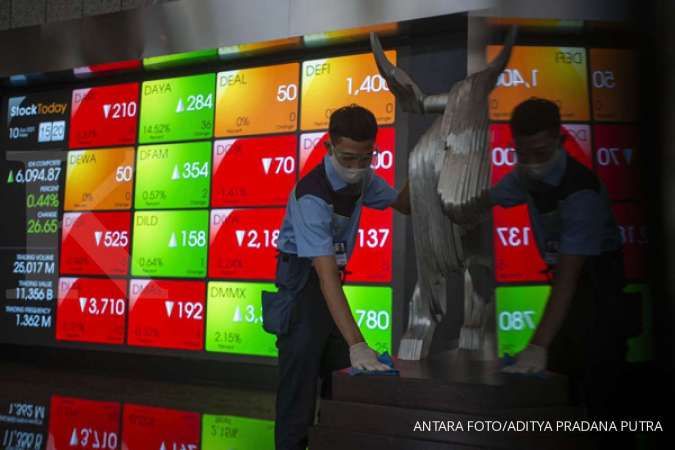Federal President Alexander Van der Bellen, Federal Chancellor Sebastian Kurz and Foreign Minister Alexander Schallenberg (both ÖVP) represent Austria on the spot. Although it was not possible to enforce a mandatory vaccination for all participants in the event at the headquarters on the East River in New York, strict access restrictions and mask requirements apply.
After the pandemic-related break in the previous year, Kurz found “steps back to normal”. Traditionally, the head of state of Brazil, currently the ultra-right and vaccine-skeptical President Jair Bolsonaro, UN Secretary-General Antonio Guterres and US President Joe Biden will give speeches. At least 83 heads of state and government have announced themselves, it was said from UN circles.
In short: “Vaccine unevenly distributed”
For Kurz, however, this also shows “that vaccine is unevenly distributed”. The Chancellor argued that the “vaccination rate” was very high in Europe and the USA. But that does not apply to “large parts of the world”. “We should be aware of that,” Kurz also said in the direction of vaccination skeptics. People in other countries would long for a situation like in Europe or Austria, where “anyone who wants to be vaccinated can also be vaccinated”.
Austria provides two million bilateral vaccine donations worldwide and around 650,000 for the Covax initiative of the World Health Organization (WHO). The aid organization Doctors Without Borders (MSF) criticized in this context that Austria was one of those countries that had “shown themselves discouraged in finding solutions to vaccine distribution” “and were only willing to give alms”.
Accusation of “vaccine nationalism” against Austria
“Instead of making bilateral donations of vaccine doses that enable PR-effective images, it would be more important to distribute them as needed and through an effective distribution mechanism that ensures those who need them most receive the vaccines. So far Austria has joined the group of countries that practice vaccine diplomacy or even vaccine nationalism, ”accused Marcus Bachmann, humanitarian advisor at MSF, of the government.
The organization also criticized Austria’s previous “blockade” with regard to vaccine patents and called for the suspension of intellectual property rights to drugs and vaccines against CoV during the pandemic. Van der Bellen also pointed out in New York that too little vaccine was available, especially in “the countries of the global south”. Van der Bellen suspected that UN Secretary-General Guterres would also address this inequality in his speech.
Guterres calls for more international commitment
At the start of the general debate, the UN Secretary General called on the international community to become more involved in the fight against the climate crisis and the pandemic. “I’m here to sound the alarm: the world needs to wake up,” said Guterres. “We are on the edge of the abyss and we are moving in the wrong direction. Our world has never been in greater danger and never more divided. We are facing the greatest cascade of crisis of our lifetime. “
Guterres described the uneven distribution of vaccine against the coronavirus as “profanity”. “A majority of the richer world is vaccinated. But more than 90 percent of Africans are still waiting for their first dose. It is a moral indictment of the state of our world, ”said Guterres. “We passed the science test. But we failed in ethics. “
The world is not standing together enough in the face of crises such as the pandemic and climate change, lamented the UN chief. “Instead of humility in the face of these epic challenges, we see presumption. Instead of the path of solidarity, we are in a dead end of destruction. ”Nevertheless, he still has hope, said Guterres. “The problems we have created are problems we can solve. Humanity has shown that we can achieve great things when we work together. “
Bilateral meetings on several topics
“With the Austrian participation, we are also supporting the importance of the UN as a world stage for foreign policy,” emphasized the Federal President in advance. International cooperation is “of particular importance for a neutral and comparatively small country like Austria”. For Austria’s top government, bilateral talks and appointments on the topics of Afghanistan, pandemic and climate protection are therefore also on the agenda in New York.
In addition to the pandemic and Afghanistan, current trouble spots such as the tense relationship between the USA and China due to international hegemony claims will also come up in the UN general debate, Van der Bellen and Kurz agreed. Foreign Minister Schallenberg added that “the pandemic had put sand in the foreign policy gears”. Personal contacts were “painfully lost”. The pandemic is a “fire accelerator” of international conflicts.
Schallenberg speaks of a “long-running Middle East”
Europe is currently surrounded by a “ring of fire” of crises, said the Foreign Minister and named the Nagorno-Karabakh conflict between Armenia and Azerbaijan, Belarus, Afghanistan and the “long-running Middle East”. For this reason, Schallenberg said he will speak about these topics in New York in the coming days with several colleagues from Libya, Pakistan, Tunisia, Armenia, Qatar and Iran.


